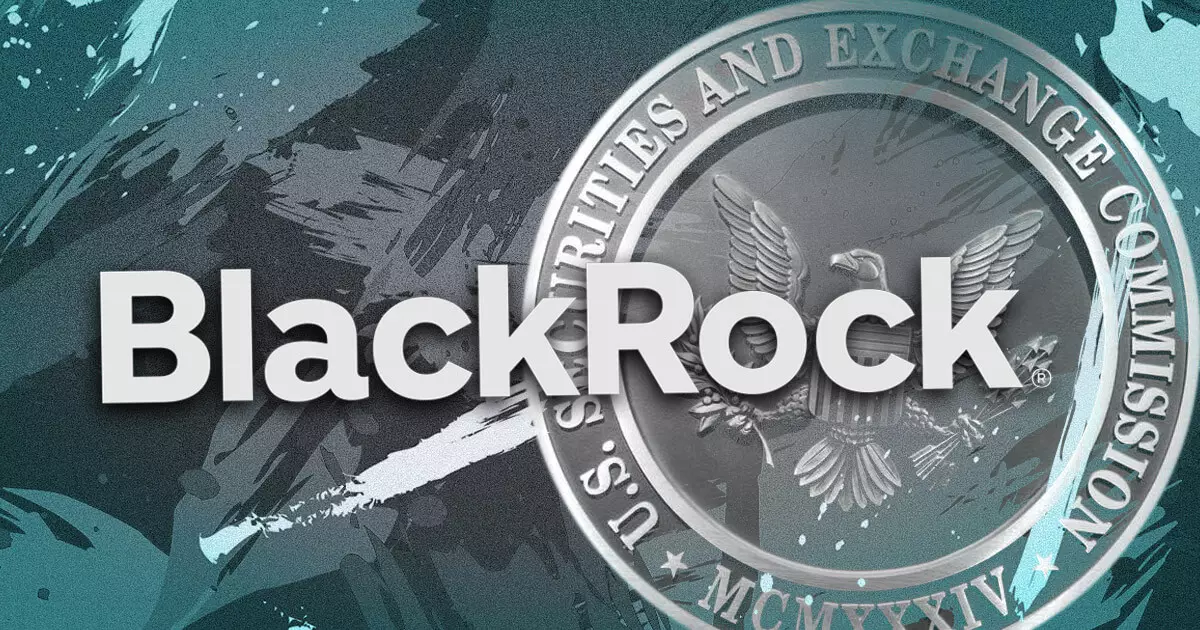BlackRock, a prominent asset manager, has recently made a new amendment to its S-1 filing for the iShares Bitcoin Trust, a potential spot Bitcoin exchange-traded fund (ETF). This amendment includes significant updates that indicate progress in the company’s pursuit of launching the ETF.
One notable change is the addition of a market ticker, IBIT, which suggests that the fund intends to trade on the Nasdaq under that label. The previous filing had used a blank field as a placeholder, showing BlackRock’s commitment towards providing more concrete information to investors and regulators.
Furthermore, the amendment reflects recent meetings between BlackRock and the U.S. Securities and Exchange Commission (SEC), which have focused on key aspects of the fund’s operations. These discussions revolved around the fund’s cash and in-kind creation and redemption models, indicating a thorough review of the fund’s structure and compliance with regulatory requirements.
In earlier filings, it was explained that the iShares Bitcoin Trust would issue and redeem shares in blocks of 40,000, known as “baskets.” However, the recent amendment introduces a change in language. While the previous amendment from December 4 suggested that relevant transactions would involve Bitcoin, the updated filing states that the transactions will occur in exchange for cash. Nonetheless, it is worth noting that Bitcoin transactions remain a possibility if Nasdaq receives the necessary regulatory approval.
This amendment emphasizes that the trust may engage in in-kind creations and redemptions involving Bitcoin if approved by relevant authorities. These in-kind transactions can provide investors with greater flexibility when entering or exiting the fund, as it allows them to exchange Bitcoin directly with the trust.
The new filing also introduces and references a “Directed Trade Model,” a term used to describe the purchase, sale, or settlement of Bitcoin between the trust and various counterparties. This model highlights BlackRock’s commitment to establishing efficient and secure mechanisms for Bitcoin transactions within the fund’s operations.
Additionally, the recent amendment includes minor yet important updates. It clarifies that the shares of the iShares Bitcoin Trust do not represent an interest in or obligations of the fund’s cash custodian, the Bank of New York Mellon, or its Bitcoin custodian, Coinbase Custody. This distinction helps investors understand the specific roles and responsibilities of the custodians and reduces confusion regarding potential risks associated with their operations.
Another noteworthy addition relates to risks associated with the CF Benchmark Index, which determines the trust’s net asset value (NAV). The filing highlights the potential consequences of system failures and errors at CF Benchmarks Ltd., which could lead to financial losses and costs borne by the trust and its shareholders.
BlackRock’s pursuit of the iShares Bitcoin Trust ETF aligns with other asset managers seeking to offer the first spot Bitcoin ETF in the United States. Experts in the field, including Bloomberg ETF applicants Eric Balchunas and James Seyffart, express strong optimism regarding the chances of approval. Balchunas and Seyffart estimate a 90% likelihood of a Bitcoin ETF gaining approval by January 10, 2024.
BlackRock’s recent amendment to the S-1 filing for the iShares Bitcoin Trust ETF demonstrates the company’s proactive efforts in providing clearer information and addressing regulatory concerns. The addition of the market ticker, updates on in-kind transactions, and the introduction of the Directed Trade Model indicate that BlackRock is focused on creating a robust and efficient Bitcoin ETF. As the SEC continues to review the application, the industry awaits the potential approval of the iShares Bitcoin Trust ETF, paving the way for greater accessibility to Bitcoin investments in the United States.


Leave a Reply